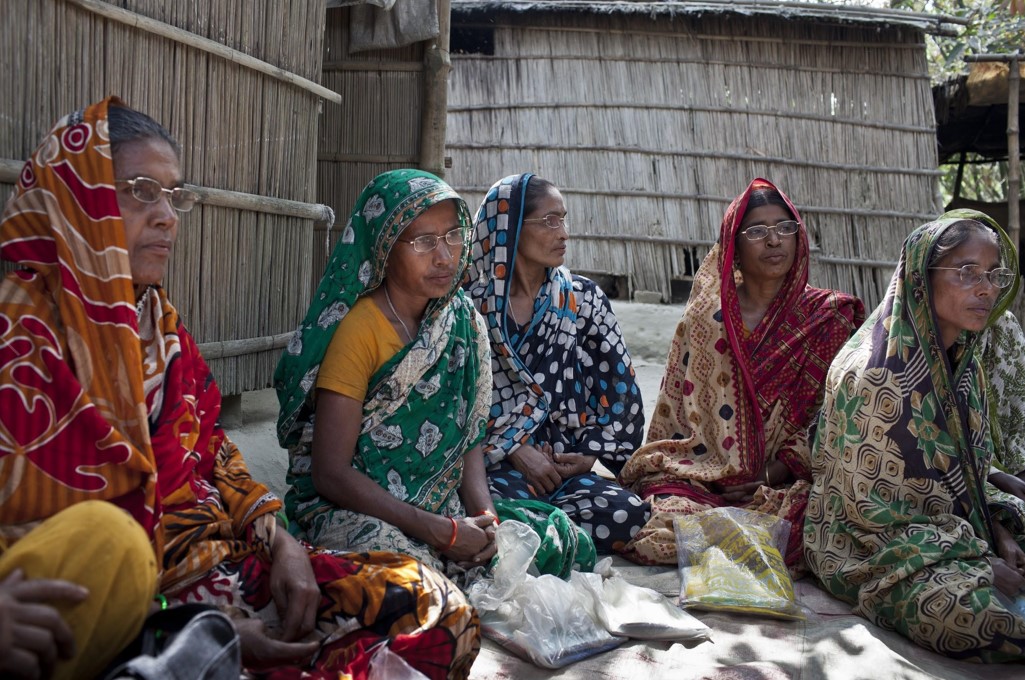
Advancing evidence-informed action to empower women

Context
Across the world, women have unequal access to health, education, livelihoods and public and political spaces. Governments, development agencies and grassroots organizations promote and support self-help groups (SHGs) of women to address these inequalities and empower women. Economic SHGs are groups that begin with a period of collective saving before providing the women members access to banking, loans and capital. Some SHGs and their federated bodies also provide training and mentorship for members to access social protection, participate in community activities or set up and form individual or collective enterprises.
Given that the approach had been widely used and studied, it was necessary to systematically review the evidence and come to a balanced understanding of the effectiveness of economic SHGs in promoting women’s individual empowerment in low- and middle-income countries. 3ie supported Brody et al. (2015) to review rigorous mixed-methods evaluations from 1980 to January 2014 to fill this synthesis gap and provide perspectives from the women SHG participants.
Evidence
The review’s analysis of 23 quantitative and 11 qualitative studies found that economic SHGs have positive, statistically significant effects on women's empowerment, including economic, social and political empowerment.
Economic SHGs that included a training component related to financial, business or life skills have a larger effect than those that did not. Overall, there was no evidence of any adverse effects, such as domestic violence, stemming from economic SHGs. While women perceived themselves as psychologically empowered, there was no evidence of positive effects on women’s psychological empowerment (capability to speak out and participate in household decision-making).
The integrated quantitative and qualitative evidence indicated the pathways through which SHGs could achieve the identified positive effects. The pathways include: familiarity with handling money and independence in financial decision-making; increased understanding of political contexts; mutual solidarity; improved social networks; and respect from the household and other community members. However, in line with more recent evaluation evidence, including from 3ie’s NRLM evaluation, the synthesis of the qualitative evidence also indicated that economic SHGs may exclude the poorest of the poor women.
Evidence impacts
Type of impact: Inform discussions of policies and programs
When subsequent phases of the evaluated programme or policy draw from the findings of the evaluation or review, and/or the study team participates in informing the design of a subsequent phase.
This is one of 3ie’s seven types of evidence use. Impact types are based on what we find in the monitoring data for an evaluation or review. Due to the nature of evidence-informed decision-making and action, 3ie looks for verifiable contributions that our evidence makes, not attribution.
Read our complete evidence impact typology and verification approach here.
Close windowThe Social Infrastructure, Employment and Human Development Unit of India’s Finance Ministry quoted from the review’s findings in 2023 Economic Survey of India, a document that presents an overview of various sectors of the economy and reviews policies relating to them. This document is made publicly available a day before the central government’s annual budget. Authors of the report directly quote one of the findings to emphasize the importance of women’s economic SHGs for women’s empowerment through several pathways including familiarity with handling money and social networks.
Type of impact: Inform discussions of policies and programs
When subsequent phases of the evaluated programme or policy draw from the findings of the evaluation or review, and/or the study team participates in informing the design of a subsequent phase.
This is one of 3ie’s seven types of evidence use. Impact types are based on what we find in the monitoring data for an evaluation or review. Due to the nature of evidence-informed decision-making and action, 3ie looks for verifiable contributions that our evidence makes, not attribution.
Read our complete evidence impact typology and verification approach here.
Close windowThe Bill & Melinda Gates Foundation has used the 3ie-supported review’s findings in its Global Framework for Advancing Women's Empowerment and 2017 Empowerment Model. The framework and model guide the foundation’s activities and investments as part of its gender equality strategy. They cite findings from the 3ie-funded review as evidence that participating in economic self-help groups reflects women’s agency and is an element of collective action that can transform power relations.
Type of impact: Inform the design of other programs
Where findings from the evaluation or review inform the design of a program(s) other than the one(s) evaluated.
This is one of 3ie’s seven types of evidence use. Impact types are based on what we find in the monitoring data for an evaluation or review. Due to the nature of evidence-informed decision-making and action, 3ie looks for verifiable contributions that our evidence makes, not attribution.
Read our complete evidence impact typology and verification approach here.
Close windowThe review’s findings around the need to a) improve the rigour of the evidence base around the effectiveness and cost-effectiveness of economic SHGs and b) enhance understanding of the pathways by which they empower women prompted the Gates Foundation to establish and support the interdisciplinary Evidence Consortium for Women’s Groups (ECWG), whose learning agenda draws from the review, apart from other resources. ECWG is led by the American Institutes of Research and Population Council, and includes several other academic and research institutions.
Suggested citation
3ie, 2021. Advancing evidence-informed action to empower women (online summary), Evidence Impact Summaries. New Delhi: International Initiative for Impact Evaluation (3ie).
Evidence impact summaries aim to demonstrate and encourage the use of evidence to inform programming and policymaking. These reflect the information available to 3ie at the time of posting. Since several factors influence policymaking, the summaries highlight contributions of evidence rather than endorsing a policy or decision or claiming that it can be attributed solely to evidence. If you have any suggestions or updates to improve this summary, please write to influence@3ieimpact.org